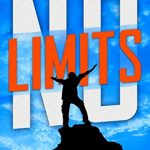If you’re looking to get in shape, build positive habits, or simply learn more about the habits you already have, a fitness tracker can be a great way to do it.
These devices are made to track information and relay it back to you so that you can easily make changes or improve as needed. One of the features of these devices we don’t tend to think much about is sleep.
Are fitness trackers a good way to gather information about your sleeping habits? Read on to learn more about how these devices keep track of your sleep.
Table of Contents
How Does a Fitness Tracker Measure Sleep?
If you’ve ever owned or looked into purchasing a fitness tracker, then you’re probably aware that many of the available options can track a wide range of variables. Some of these include heart rate, movement, and some even include a GPS so you won’t need to worry about getting lost.
Several fitness trackers also claim to be able to track the amount of sleep you get each night.
However, the technology used to do this isn’t quite as concise as it is for exercise purposes. The majority of fitness tracker applications use something known as an accelerometer.
Essentially, the idea is that the accelerometer can give you an idea as to how much time you spend asleep versus how much time you spend awake.
Sometimes, we may think we’ve gotten enough sleep but the amount of time spent in bed doesn’t always equal the amount of time we actually spend drifting through dreamland.
What is an Accelerometer?
An accelerometer is a device that keeps track of different forms of movement. To put it very simply, it’s what tells the fitness tracker whether or not you’re moving and how far you’re going.
As you might expect, these devices are also designed to be aware of when you’re not moving.
This part of the fitness tracker proves to be incredibly useful for tracking exercise-related tasks.
However, by itself it isn’t the most ideal method for tracking sleep.
It’s a device that can make guesses as to how long you’re sleeping, but more is needed for it to really get a clear view of your nighttime activities.
Can a Fitness Tracker Measure Sleep Stages?
While you’re shopping for a fitness tracker, you may find that some of them not only claim to track the time you spend asleep but also what stages of sleep you spend that time in.
This is a claim you might want to be wary of. The reason for that is that our sleep stages are determined by brainwaves, and have very little to do with movement or even heart rate.
Fitness trackers may be quite advanced, but they aren’t yet advanced enough to be able to track our brainwaves.
That’s not to say that these trackers can’t be useful. Even having a general idea about how much sleep you get can be useful, albeit in a smaller way. Just don’t expect a fitness tracker to have every moment of your sleep tracked perfectly. The best these devices can do is make an educated guess.
What’s worth keeping in mind is that for the most part, the more generalized estimation of sleep isn’t really going to harm most people.
That said, there can be cases in which the estimations can result in people ignoring sleep problems that they may otherwise be more aware of.
Who Shouldn’t Rely on a Fitness Tracker to Track Sleep?
While the sleep tracking a fitness tracker offers may be okay for most people, there are some cases in which it can be more harmful than helpful. This mainly applies to people suffering with sleep disorders.
Because fitness trackers aren’t as precise as what you might find in an actual sleep lab, they can sometimes lead people to believe they are getting more sleep than they actually are.
If people who have sleep disorders start to think they are getting more sleep, they may pay less attention to the experiences they are actually having while trying to sleep.
How is it Helpful to Track Sleep?
If you aren’t concerned about a sleeping disorder, then you may find that the basic sleep tracking fitness trackers offer can be helpful. Just make sure that you combine that information with your own experiences with regard to your sleep.
Do you feel well slept in the morning? Does it take you a long time to get to sleep? Do you wake up frequently?
Take note of these factors, as well as the information picked up by the fitness tracker, to your doctor. With the combined information, they can get a clearer view of your sleep health as a whole. It can also help to show you whether or not your fitness tracker is in the right ballpark.
Ultimately, it’s going to be up to you and your doctor to determine any sleep problems you may be having. It can help to have some tracked information that can give your doctor a clearer idea about what’s going on at night, just make sure you take the information it gathers with a grain of salt.
It’s not perfect, but it can still be useful in improving your overall sleep hygiene.
Conclusion
Overall, the sleep tracking offered on fitness trackers has a long way to go. This isn’t to say that it’s bad technology, just underdeveloped.
Right now, a fitness tracker may only be able to make guesses about how well you’re sleeping, but in time they are likely to become more precise.
Essentially, that means you should continue to use your fitness tracker for all of the features it is useful for.
You can also choose to track sleep if that appeals to you, but keep in mind that it’s an imperfect science for fitness trackers at this point in time.




